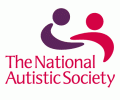Autism is a life-long condition that affects the way a person communicates and relates to people around them. As part of the spectrum of Pervasive Developmental Disorder (PDD) it also includes the condition known as Asperger Syndrome, which describes people who show the characteristics of autism, but are of average or above average intelligence and may also have good communication skills.
The estimated prevalence rate of autistic spectrum disorders (ASD), including Asperger syndrome, is approximately 1 per 100 children in the United Kingdom. Autism also affects four times as many boys as girls. Though it describes a state with wide ranging degrees of severity, all those affected have a triad of impairments, which will include all or some of the following characteristics:
• Difficulty with developing imagination
People with autism are usually unable to play imaginatively with objects or toys or with other children or adults. They tend to focus on minor or trivial things around them, for example an earring rather then the person wearing it, or a wheel instead of the whole toy train.
• Difficulty with verbal and non-verbal communication
People with autism may be unable to appreciate the social uses and the pleasure of communication. Even if the person with autism has a lot of speech they would probably use this to talk "at" you rather than with you. The person with autism may be able to ask for their own needs but find it hard to talk about feelings or thoughts and will not understand the emotions, ideas and beliefs of other people. They do not really understand the meaning of gestures, facial expression or tone of voice, although higher functioning people with autism do use gestures but these tend to be odd and inappropriate. People with autism understand and use language very literally, with an idiosyncratic, sometimes pompous choice of words and phrases and limited content of speech.
• Difficulty with social relationships
People with autism may often appear aloof and indifferent to other people. The more able people with autism will passively accept social contact and even show some signs of pleasure in this, but will rarely make spontaneous approaches. They can occasionally approach other people but in an odd, inappropriate, repetitive way, paying little or no attention to the responses of those they approach.
Click on the NAS logo for further information.
The estimated prevalence rate of autistic spectrum disorders (ASD), including Asperger syndrome, is approximately 1 per 100 children in the United Kingdom. Autism also affects four times as many boys as girls. Though it describes a state with wide ranging degrees of severity, all those affected have a triad of impairments, which will include all or some of the following characteristics:
• Difficulty with developing imagination
People with autism are usually unable to play imaginatively with objects or toys or with other children or adults. They tend to focus on minor or trivial things around them, for example an earring rather then the person wearing it, or a wheel instead of the whole toy train.
• Difficulty with verbal and non-verbal communication
People with autism may be unable to appreciate the social uses and the pleasure of communication. Even if the person with autism has a lot of speech they would probably use this to talk "at" you rather than with you. The person with autism may be able to ask for their own needs but find it hard to talk about feelings or thoughts and will not understand the emotions, ideas and beliefs of other people. They do not really understand the meaning of gestures, facial expression or tone of voice, although higher functioning people with autism do use gestures but these tend to be odd and inappropriate. People with autism understand and use language very literally, with an idiosyncratic, sometimes pompous choice of words and phrases and limited content of speech.
• Difficulty with social relationships
People with autism may often appear aloof and indifferent to other people. The more able people with autism will passively accept social contact and even show some signs of pleasure in this, but will rarely make spontaneous approaches. They can occasionally approach other people but in an odd, inappropriate, repetitive way, paying little or no attention to the responses of those they approach.
Click on the NAS logo for further information.
ESPA Research Ltd. Company registration: 6862992 ESPA. Registered charity: 1037868
ESPA Research registered office: 2A Hylton Park Road, Sunderland SR5 3HD, UK


